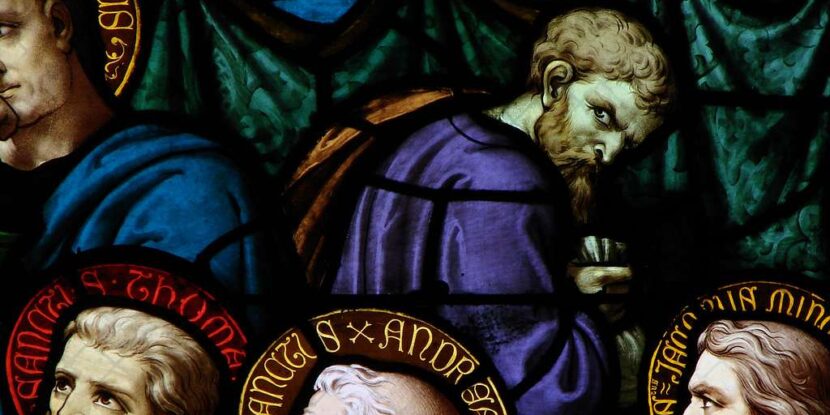Holy Wednesday, also known—for reasons that will soon become clear—as Spy Wednesday, is a low point in Holy Week, particularly after the triumph of Palm Sunday, when Jesus entered into Jerusalem, and the righteous zeal of Holy Monday and Holy Tuesday, when Jesus turned the moneychanges out of the temple and called out the corruption of the temple leaders.
As we have seen, the priests and elders had already made up their minds to destroy Jesus. On Spy Wednesday, they recruited their instrument.
JUDAS MAKES HIS BARGAIN.
After the confrontation with the scribes and Pharisees in the temple courts on Tuesday, Jesus and His closest disciples, the Twelve, withdrew to Bethany, their refuge in these final days. But one of the Twelve, Judas Iscariot, decided to turn traitor and “went unto the chief priests, and said unto them, What will ye give me, and I will deliver him unto you?”
The price the priests offered, the infamous “thirty pieces of silver” foreshadowed by Zechariah 11:12-13 in the Old Testament, was not high—perhaps a few hundred dollars in today’s money—but it was enough for Judas, who began seeking his opportunity to betray Jesus. He, then, is the ‘Spy’ in Spy Wednesday.
Certain Christians, such as observant Eastern Orthodox, mark this event not only on Spy Wednesday but every Wednesday, fasting in remembrance of Jesus’s betrayal. Additionally, the Orthodox fast on Fridays in remembrance of Jesus’s execution, along with Catholics.
THE ANOINTING IN BETHANY.
There was love as well as treachery on Spy Wednesday, however. While Judas was betraying the Lord in Jerusalem, a woman identified as Mary, sister of Martha and Lazarus—who was raised from the dead—approached Jesus with an alabaster box of “very precious ointment” in Bethany and anointed him.
Some of the disciples bristled at the perceived wastefulness of woman’s gesture, with Judas, in particular, suggesting the oil could have been sold to raise money for the poor—although St. John tells us that his real concern was stealing from their shared funds, which he had charge of.
“Why trouble ye the woman?” Jesus said. “For ye have the poor always with you, but me ye have not always. For in pouring this ointment on my body, she did it for my burial,” He said—forewarning his followers, not for the last time, of His looming death.
Judas and the temple authorities would close the trap on Maundy Thursday.


